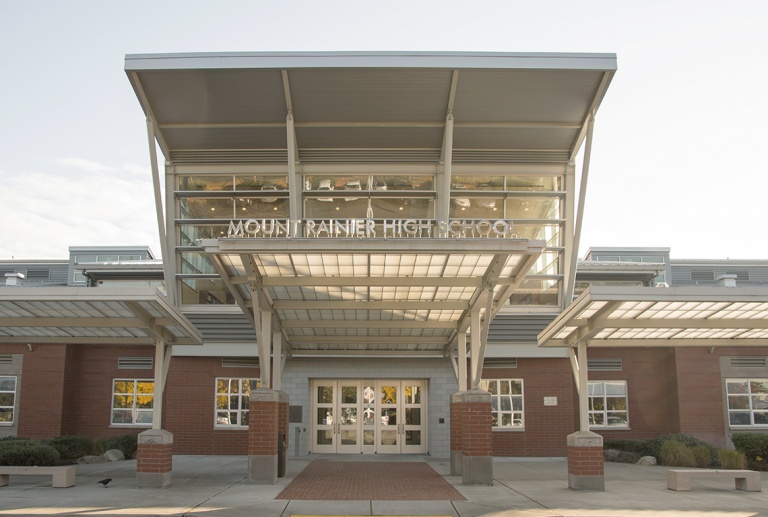Although 83 percent of students in South King County want to earn a college or career credential, only 30 percent have earned a two- or four-year degree by their mid-twenties....
Learn More
Some bright spots,
but much work lies
ahead
Our region has made progress improving education for our students: high school graduation rates have climbed, the number of programs reconnecting youth to education and employment has more than tripled, and new state policies encourage the expansion of dual-language programs and open the doors for immigrants to join the teaching workforce.
However, there’s still much to do: access to formal early learning programs is inadequate and uneven, schools need to strengthen family engagement, and although more than half of our students go off to college, less than a third earn a degree by their mid-twenties. Large performance and opportunity gaps by race still persist.
Tracking Progress
The Road Map Project has historically measured progress in South King County and South Seattle through the “Indicators of Student Success,” a collection of student achievement milestones. Now, instead of only tracking student indicators, we are beginning to look at the underlying conditions that impact our young people. Measuring system change is challenging because such data are not readily available, but it is imperative we seek this information to see if policies and practices are advancing or impeding student success.
More on regional progress
What's Happening in Our Focus Areas
College and Career Success
Our students want to go to college. While there has been momentum in the region on college readiness, college enrollment numbers are not moving and completion rates are unacceptably low....
Learn MoreEarly Learning
Learning starts at birth. And all children need opportunities to learn in a variety of settings in order to thrive: home, community-based programs, safe outdoor play spaces, and group programs....
Learn MoreEnglish Language Learners
There are more than 27,000 English language learners in our K-12 schools, marking a 44 percent increase since the Road Map Project began in 2010. These students speak 165 primary...
Learn MoreExpanded Learning Opportunities
How children and youth spend their time outside the school day has a profound impact on their school and life success. High-quality expanded learning opportunities, such as after-school programs, fill...
Learn MoreFamily Engagement
As children’s first teachers, families have an immense impact on their development and education. Research from national experts and insights from practitioners confirm the powerful effect of family engagement on...
Learn MoreOpportunity Youth
There are about 10,000 16 to 24-year-olds in the Road Map Project region who are not in school or working. But these opportunity youth, despite facing significant barriers, are powerful...
Learn MoreSchool Discipline
As communities well know, and as supported by research, Black and Brown children continue to experience more frequent and severe discipline compared with their White peers. School districts in the...
Learn MoreSocial & Emotional Learning
Social and emotional learning is broadly defined as the process through which children and youth build awareness and skills in managing emotions, setting goals, establishing relationships, and making responsible decisions....
Learn More